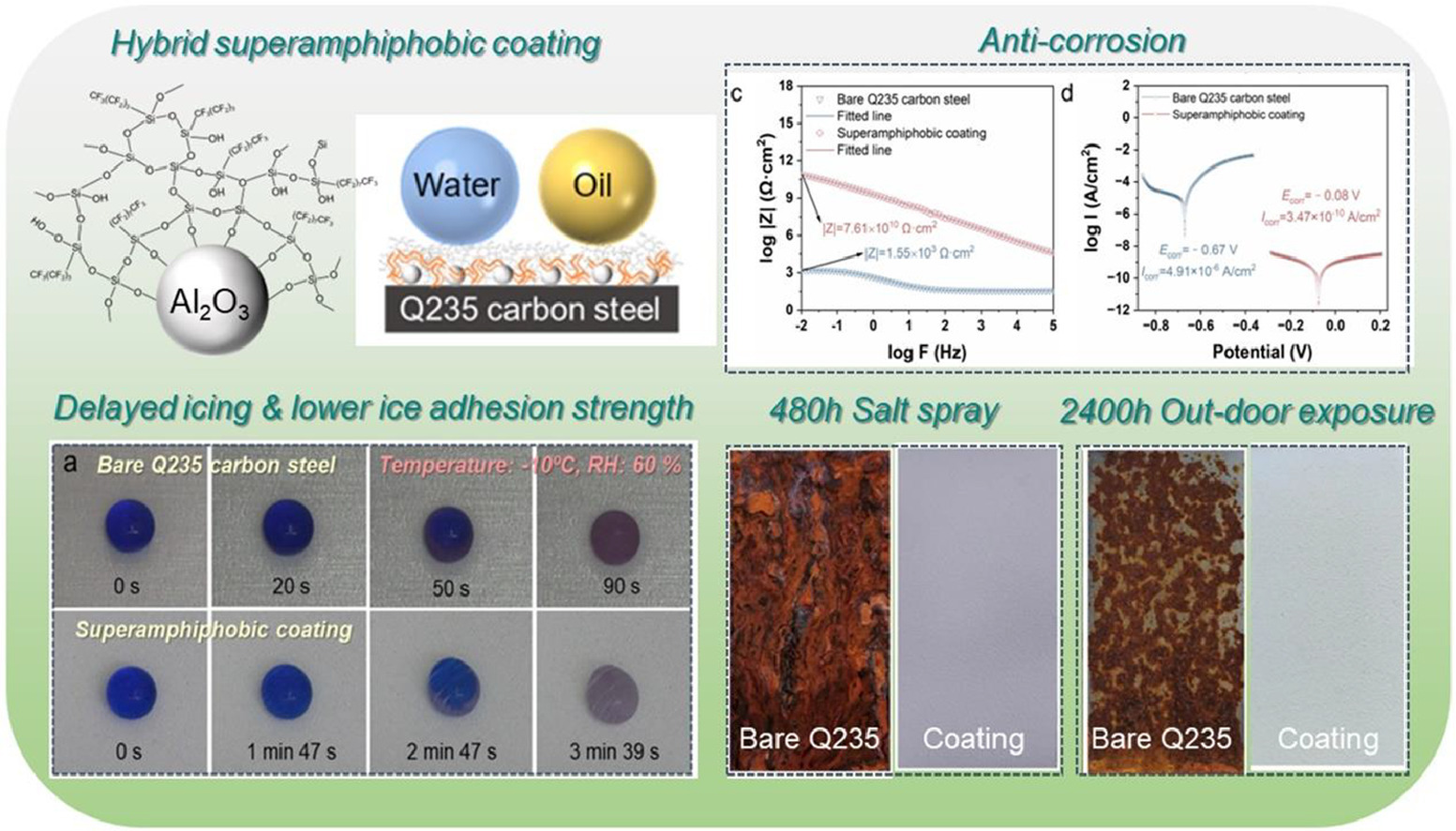Corrosion and failure of metal materials has always been a problem that researchers and engineers are eager to solve. Inspired by the lotus effect, biomimetic superhydrophobic materials with typical non-wetting properties at the interface have shown great potential in the field of corrosion protection. Although the anti-corrosion function of superhydrophobic materials has been confirmed by researchers at home and abroad, there are still many unresolved challenges in the process of transitioning from the laboratory to practical applications.
A research team led by Prof. ZHANG Binbin from the Institute of Oceanology of the Chinese Academy of Sciences reported an organic-inorganic hybrid super-amphiphobic coating with integrated functionalities of liquid repellency, self-cleaning, anti-corrosion, and anti-icing.
The study was published in Journal of Materials Science & Technology on Dec. 14.
According to the researchers, the developed coating exhibits both superhydrophobic and superoleophobic properties, and shows excellent repellency to low surface tension liquids such as water, glycerol, ethylene glycol, and peanut oil, with sliding angles all less than 7°.
The corrosion resistance of the coatings was extensively evaluated using electrochemical impedance spectroscopy, Tafel polarization, salt spray testing, and outdoor atmospheric exposure, respectively. The results showed that the charge transfer resistance and low-frequency modulus of the coating increased by seven-eight orders of magnitude, enduring 480 hours of neutral salt spray and 2,400 hours of atmospheric exposure, demonstrating significant long-term anti-corrosion potential.
In addition to significantly improved corrosion resistance, the coatings also demonstrated their functional integration capabilities in self-cleaning, delayed icing, lossless liquid transport, and substrate applicability.
The uniform dispersion of functionalized Al2O3 nanoparticles in the coatings provides important assurance for the ultimate realization of the coatings' multifunctional integration properties.
"We firmly believe that the continuous improvement of functional integration and long-term stability will remain the focus of future research in this field," said Prof. ZHANG, first and corresponding author of the study.
This study was supported by the Shandong Provincial Natural Science Foundation and the Youth Innovation Promotion Association of CAS.

The superamphiphobic, corrosion resistance, delayed icing, and long-term real-world anti-corrosion performance. (Text by ZHANG Binbin)






